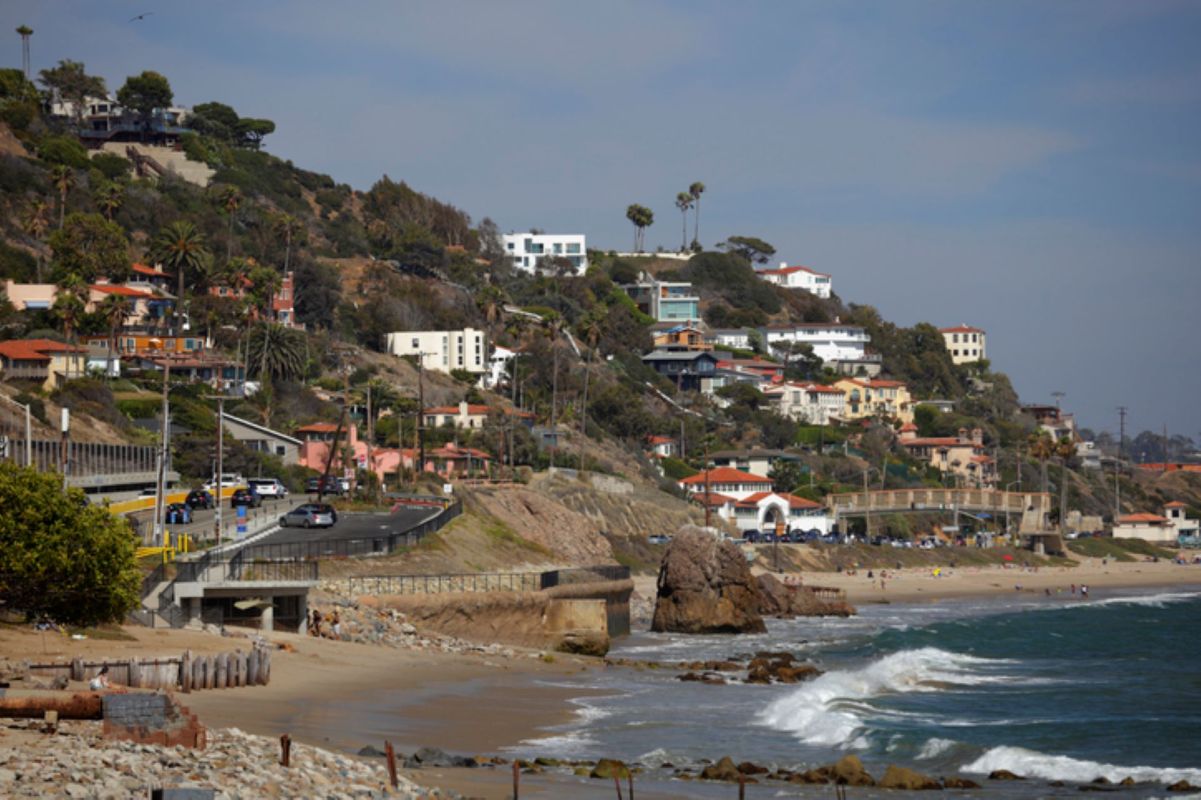California's famous beaches have driven tourism and raised property values for decades, but they won't last forever. New research indicates that rising sea levels could wipe out many of these beaches — possibly by the year 2100, NPR reports.
What's happening?
Sean Vitousek of the U.S. Geological Survey was the lead author of a recent report about California's coastline. The study looked at almost 40 years of satellite data to make predictions.
What the researchers found was that rising sea levels affected the shoreline in two ways, NPR reveals. Obviously, the higher the water level rises, the more land it covers, but the rising water also simultaneously erodes the beach.
"The shoreline, where the water meets the sand right now, is probably going to retreat landward about 30 meters [98.4 feet] or more for every meter [3.3 feet] of sea level rise you get," Vitousek told NPR during an interview. "When you get into three meters [9.8 feet] of sea level rise, you're talking almost 300-plus feet of erosion under those large scenarios."
Ultimately, the researchers believed that 24% to 75% of California's beaches could be completely gone by 2100. The two factors raising the sea level — melting ice and salt water warming enough to expand — are both driven by the Earth's rising temperature.
Why is this erosion a problem?
Aside from the many people living in areas that may be affected and the homes and property that would be lost or damaged, this issue would also affect many roads and railroads along California's coast, NPR reveals. That could require significant infrastructure projects to fix.
University of California, Irvine, professor Kathleen Treseder pointed out that the rising shoreline would also impact the environment. Some environmental projects removing pollutants from runoff rely on artificial marshes. If the sea level rose, those areas would be underwater, allowing the pollutants to flow directly into the ocean.
What can be done to prevent erosion?
Treseder told NPR that while short-term solutions are expensive and temporary, a medium-term option would be artificial barrier islands off the coast that could blunt the force of the waves. "The ocean is going to do what the ocean is going to do, and we can stop it to a certain extent," she said. "But we're nowhere near as powerful as the ocean, so we're kind of at its mercy."
In the long term, Treseder said the only real solution is to stop the air pollution that's driving Earth's temperature up. "Humans changed the atmosphere one way, we can change it back — for sure," she said. "It's just the question of the will of the people."
Join our free newsletter for cool news and cool tips that make it easy to help yourself while helping the planet.
TCD Picks » Quince Spotlight














